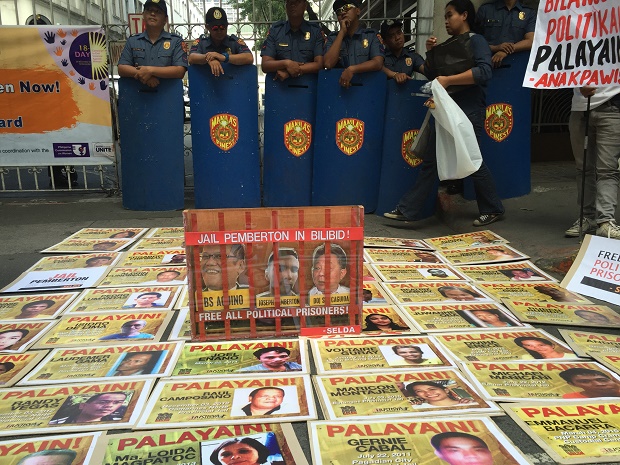What is a political prisoner?
(Reposting this sidebar originally uploaded on December 9, 2016)
The issue of political prisoners has been making headlines recently as the Philippine government and the National Democratic Front (NDF) negotiate for a peace agreement.
Among the demands of the NDF, the political arm of the Communist Party of the Philippines, is the release of more than 400 political prisoners.
During the election campaign, Duterte said he is willing to release all of them without pre-conditions as part of confidence-building measures.
READ: Duterte to free political prisoners
Article continues after this advertisementHowever, he recently said he is no longer willing to do this because the government has allegedly given too much already.
Article continues after this advertisementREAD: Duterte rejects NDF’s plea to free 130 political prisoners
Meanwhile, a government negotiator said Duterte was still open to the idea if the bilateral ceasefire agreement would be signed.
READ: Ceasefire first before release of prisoners, Bello cites Duterte
The number of political prisoners negotiated for release has also gone down from 400 to 180 and now 130.
But what exactly are political prisoners and how do they figure in the peace talks for the longest running communist insurgency in Asia?
A basic definition of a political prisoner is someone who is imprisoned because of beliefs contrary to that of his government.
This is the same definition used by human rights groups like Karapatan, which advocate for the release of political prisoners.
The Karapatan fact sheet defines political prisoners as people detained for their political beliefs and work.
According to the group, political prisoners are often victims of trumped-up charges. They are accused of committing ordinary crimes, instead of political acts, to prevent them from posting bail.
They are also deprived of due process, civil and political rights.
Karapatan says that many political prisoners are ordinary citizens accused of supporting insurgents, especially if they live in areas held by the likes of the New People’s Army, the military arm of the Communist Party of the Philippines (CPP).
As of December, there are more than 400 political prisoners in Philippine jails, 130 of them are ailing or elderly.
Some of those released earlier were also identified consultants of the NDF. They were granted temporary freedom by the court to participate in the formal peace talks in Oslo, Norway.
READ: NDFP consultants granted temporary liberty to join Oslo talks
With the uncertainty of the fate of political prisoners, CPP founding chairperson Jose Maria “Joma” Sison said all of them should be released or else they will cancel the ceasefire agreement.
“The GRP must keep its word of amnestying and releasing all the 434 political prisoners. Otherwise, the CPP, NPA and NDFP would terminate any ceasefire agreement even if already signed at the level of the panels and shift to the mode of negotiating while fighting,” he said.
